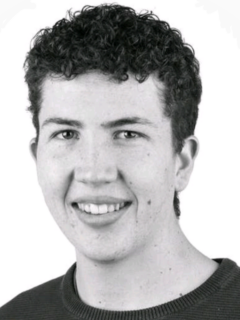Christopher Brückner
Christopher Brückner
Thesis Topic: Self-supervised VarNet with ROVir-Based Focused Loss for MRI Reconstruction
Supervisors: Erik Gösche, Prof Dr. Florian Knoll
Description
This thesis will investigate and optimize the application of the Variational Network (VarNet) [1] architecture for MRI reconstruction, with a particular emphasis on improving image quality in clinically significant areas, such as lesions in the brain. To achieve this goal, the study will utilize the fastMRI+ dataset [2] for both training and validation purposes. Additionally, a region optimized virtual (ROVir)-based focused loss framework will be incorporated, aiming to improve reconstruction quality specifically in critical regions, thereby enhancing diagnostic accuracy and reliability. To implement ROVir coils, bounding boxes of brain lesions, provided in the fastMRI+ dataset, will be used. Self-supervision via data undersampling (SSDU) is used to train the VarNet, a technique that allows the network to learn reconstruction tasks without the need for fully sampled k-space data. This thesis investigates the interaction between SSDU and the ROVir-based loss framework to enhance reconstruction quality while preserving overall image fidelity. The evaluation will be conducted using the Structural Similarity Index Measure (SSIM), Peak Signal-to-Noise Ratio (PSNR), and Normalized Mean Squared Error (NMSE) metrics [3]. To investigate the performance of downstream tasks, such as lesion segmentation, a pretrained model of the BraTS Challenge [4] will be used to validate performance on reconstructions with and without ROVir coils.

